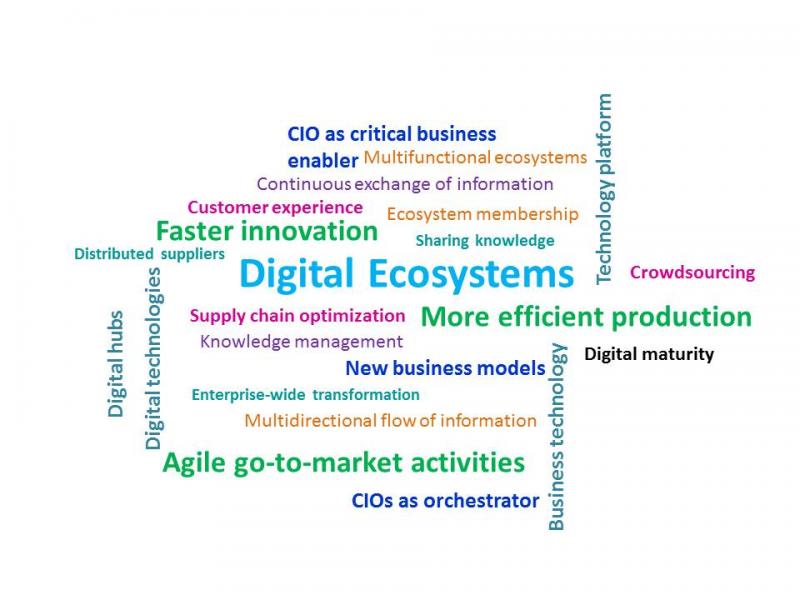Digital Ecosystems Alter Value Creation And Process Landscapes

CIOs will be orchestrators of digital ecosystems to boost innovation, production, and go-to-market capabilities. In the age of the customer, every business needs to put the customer at the center of marketing, sales, service, and delivery in order to support the brand promise.
Business ecosystems comprise many market players, including suppliers, distributors, customers, competitors, and government agencies. People, processes, and technology are the fundamental building blocks of business ecosystems. They evolve as a form of collaboration between these market players as part of the process of developing and delivering products or services. Now business ecosystems are going digital.
The digital transformation is a huge challenge and opportunity for each individual business. Business processes are changing significantly as a result of real-time information exchange, the mobile mind shift, always connected and mobile devices, and the opportunity to collect and monitor structured and unstructured data. As a business enabler, no CIO can ignore the digital transformation. Digital ecosystem management is much more than a sourcing project: According to Capgemini, businesses with the digital maturity to build digital innovations and to drive enterprise-wide transformation are 26% more profitable than their average industry competitors on a range of measures including EBIT margin and net profit margin. The CIO must actively help the organization to deliver value in the emerging digital ecosystems.
Business-to-business (B2B) digital ecosystems such as SupplyOn, GlobalFoundries, Open Automotive Alliance, or InnoCentive drive a fundamental shift in the way companies cooperate and compete with one another. Through the continuous exchange of information and the collaboration around data businesses, CIOs can drive faster innovation, more efficient production, and more agile go-to-market activities. Winning businesses will move toward a networked-business model.
In turn, this has big strategic implications for CIOs and their business technology strategies. Digital ecosystems empower the CIO to become a critical business enabler by providing a technology platform to redefine approaches toward innovation, knowledge management, supply chain optimization, product development, and sales and marketing. In particular, traditional firms put survival at risk due to slow innovation cycles. CIOs who define a clear strategy to exploit the possibilities that digital ecosystems offer for their organizations position themselves as powerful change agents. The new report Use The Power Of B2B Digital Ecosystems helps CIOs develop a successful technology strategy for digital ecosystems.
